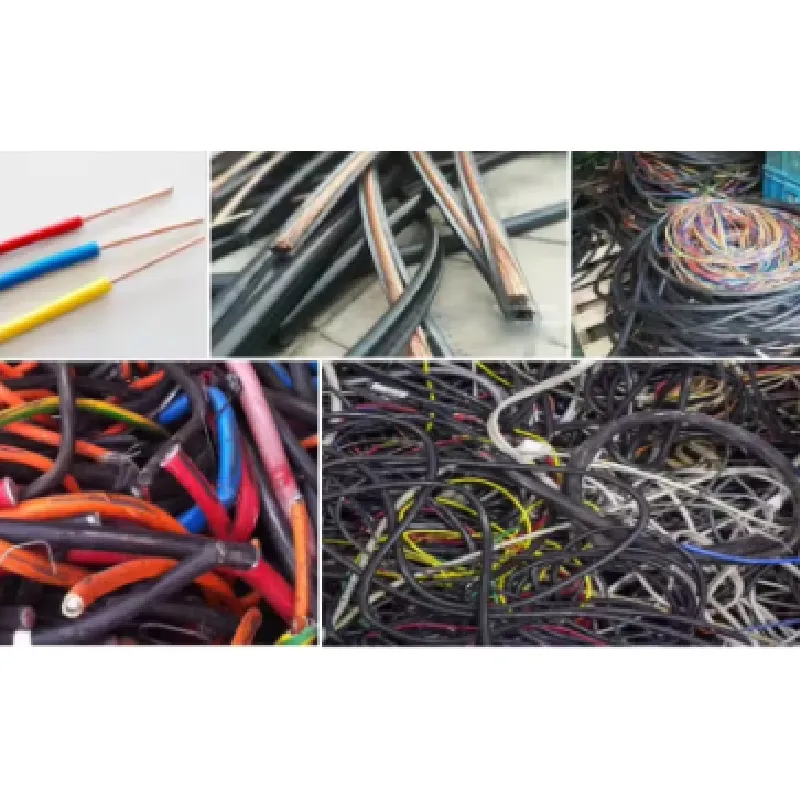
12 月 . 03, 2024 18:20 Back to list
Understanding Iron Shredder Machines A Comprehensive Overview
Iron shredder machines represent a pivotal component in the metal recycling industry, specifically designed to break down large volumes of scrap iron and metal into smaller, more manageable pieces. These machines facilitate the recycling process, ensuring that valuable materials can be efficiently processed, ultimately reducing waste and supporting environmental sustainability. This article explores the features, benefits, applications, and operational considerations of iron shredder machines.
What is an Iron Shredder Machine?
An iron shredder machine, often referred to as a metal shredder or scrap shredder, is specialized equipment equipped with powerful blades or hammers designed to shred scrap iron, steel, and other ferrous metals. The machines vary widely in terms of size, capacity, and technology, tailored to meet the specific demands of different recycling operations. The shredded material is often reduced to small nuggets or chips that can be easily handled, transported, and melted down for reuse in manufacturing processes.
Features of Iron Shredder Machines
1. Heavy-Duty Construction Iron shredder machines are built to withstand extreme stress and impact, with robust materials ensuring longevity and durability. The housing and cutting components are engineered to tolerate the rigors of shredding tough metal materials.
2. Powerful Drive Systems These machines are equipped with powerful motors that often exceed hundreds of horsepower. Such power allows them to shred large, thick metal pieces into smaller sizes efficiently.
3. Advanced Shredding Technology Many modern iron shredders utilize advanced technology to optimize performance, including programmable controls that adjust shredding speed and operation according to the material type. Some models feature hydraulic systems enhancing their shredding capabilities.
4. Safety Features Safety mechanisms are critical in iron shredders given the hazardous nature of the operations. These may include emergency stop buttons, automatic shut-off functions, and protective covers to safeguard operators from flying debris.
Benefits of Using Iron Shredder Machines
1. Enhanced Recycling Efficiency By breaking down scrap metal into smaller sizes, iron shredder machines significantly speed up the recycling process, allowing for quicker subsequent processing steps such as melting and remelting.
2. Improved Material Quality Shredded metals are easier to sort and grade, resulting in higher quality recycled materials that command better prices in the market.
3. Cost-Effectiveness Investing in an iron shredder can yield substantial cost savings for businesses by reducing disposal costs and increasing revenue from recovered materials.

Applications of Iron Shredder Machines
Iron shredder machines find applications in various industries including
- Metal Recycling Facilities These machines are integral to operations focused on processing scrap into reusable metal.
- Automotive Industry Used to shred obsolete vehicles to recover valuable metal components.
- Construction and Demolition Shredders are used to handle metal waste from construction sites, ensuring that materials like steel beams and rebar are efficiently processed.
- Electronic Waste Recycling Shredders are also utilized for the safe disposal of electronic devices that contain metal components.
Operational Considerations
When selecting an iron shredder machine, several factors must be taken into account
1. Material Type Different machines are designed to handle varying types of materials; hence it’s crucial to select one appropriate for your specific needs.
2. Throughput Capacity Consider the volume of material needing processing. Larger operations may require high-capacity shredders to handle substantial volumes without delays.
3. Maintenance Requirements Regular maintenance is essential to ensure optimal performance and longevity of the machine. Understanding the maintenance schedule and costs involved is critical for operational planning.
4. Regulatory Compliance Ensure that the chosen machine complies with local environmental and safety regulations, as non-compliance can lead to legal ramifications and operational disruptions.
Conclusion
Iron shredder machines play a vital role in the metal recycling process, enabling efficient and environmentally responsible recycling operations. Their robust construction, advanced technology, and ability to produce high-quality recyclable material makes them indispensable in today’s industrial landscape. With growing environmental regulations and the increasing demand for recycled materials, the importance of iron shredder machines will likely continue to rise, paving the way for a more sustainable future in metal recycling.
Latest news
Unveiling the Power of Eddy Current Separator
NewsSep.25,2024
Transform Your Home Recyclin:home metal shredder
NewsSep.25,2024
The Future of Waste Management with Recycling Line Picker
NewsSep.25,2024
The Benefits of a Metal Recycling Plant
NewsSep.25,2024
Revolutionize Material Separation with Onwang Technology
NewsSep.25,2024
Innovative Waste Management: Unveiling the MSW Sorting Plant
NewsSep.25,2024